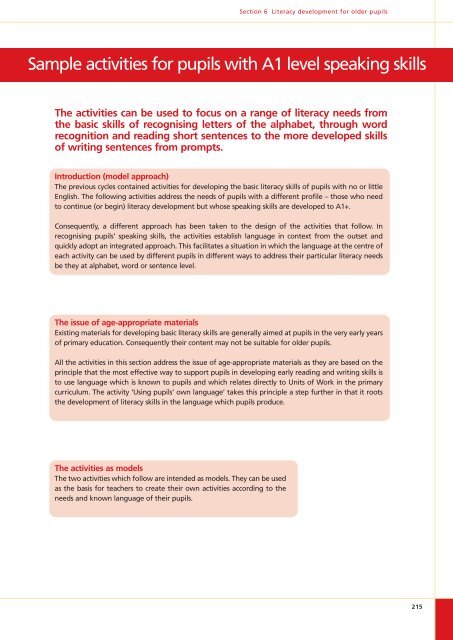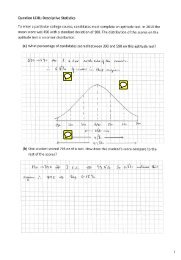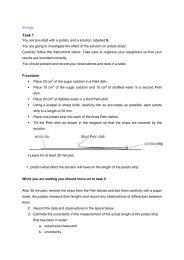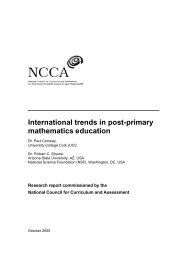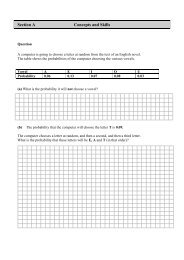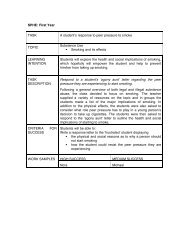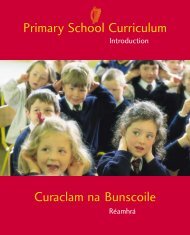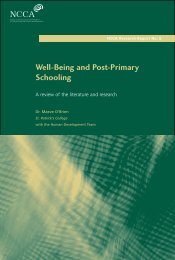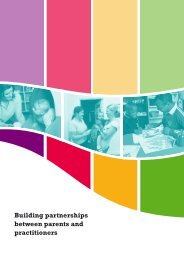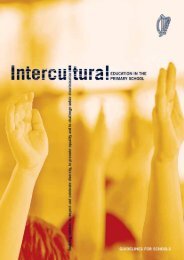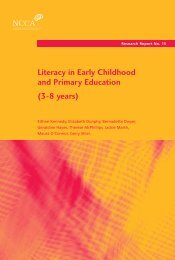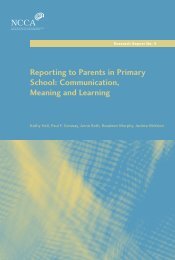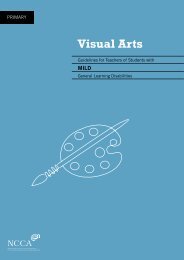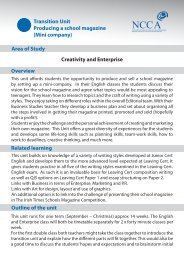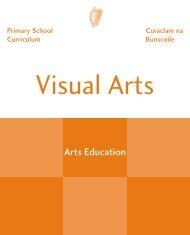Up and Away - National Council for Curriculum and Assessment
Up and Away - National Council for Curriculum and Assessment
Up and Away - National Council for Curriculum and Assessment
Create successful ePaper yourself
Turn your PDF publications into a flip-book with our unique Google optimized e-Paper software.
Section 6 Literacy development <strong>for</strong> older pupils<br />
Sample activities <strong>for</strong> pupils with A1 level speaking skills<br />
The activities can be used to focus on a range of literacy needs from<br />
the basic skills of recognising letters of the alphabet, through word<br />
recognition <strong>and</strong> reading short sentences to the more developed skills<br />
of writing sentences from prompts.<br />
Introduction (model approach)<br />
The previous cycles contained activities <strong>for</strong> developing the basic literacy skills of pupils with no or little<br />
English. The following activities address the needs of pupils with a different profile – those who need<br />
to continue (or begin) literacy development but whose speaking skills are developed to A1+.<br />
Consequently, a different approach has been taken to the design of the activities that follow. In<br />
recognising pupils’ speaking skills, the activities establish language in context from the outset <strong>and</strong><br />
quickly adopt an integrated approach. This facilitates a situation in which the language at the centre of<br />
each activity can be used by different pupils in different ways to address their particular literacy needs<br />
be they at alphabet, word or sentence level.<br />
The issue of age-appropriate materials<br />
Existing materials <strong>for</strong> developing basic literacy skills are generally aimed at pupils in the very early years<br />
of primary education. Consequently their content may not be suitable <strong>for</strong> older pupils.<br />
All the activities in this section address the issue of age-appropriate materials as they are based on the<br />
principle that the most effective way to support pupils in developing early reading <strong>and</strong> writing skills is<br />
to use language which is known to pupils <strong>and</strong> which relates directly to Units of Work in the primary<br />
curriculum. The activity ‘Using pupils’ own language’ takes this principle a step further in that it roots<br />
the development of literacy skills in the language which pupils produce.<br />
The activities as models<br />
The two activities which follow are intended as models. They can be used<br />
as the basis <strong>for</strong> teachers to create their own activities according to the<br />
needs <strong>and</strong> known language of their pupils.<br />
215


